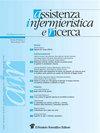[对住院老年患者辅助行走项目的随机对照试验进行为期三个月的随访]。
IF 0.9
4区 医学
Q4 NURSING
引用次数: 0
摘要
。对住院老年患者辅助行走计划的随机对照试验进行为期三个月的随访。功能衰退在老年住院患者中很常见。事实上,住院期间低活动能力和卧床休息被认为是老年住院患者独立行动能力下降的可预测原因。AIMPRIMARY终点:与常规护理相比,老年患者从入院前/入院至出院和90天随访期间的行走能力变化,采用Braden活动量表进行评估。次要终点为再住院率和死亡率。方法在某老年病房进行随访90 d的随机对照试验。结果共纳入住院患者307例,年龄在65岁以下。干预组接受个性化辅助行走计划(IAWP),与对照组接受常规护理相比,出院时行走能力显著提高(p< 0.001),随访90天(p=0.009)。两组在死亡率和再住院率方面无显著差异。结论个性化的辅助步行方案可提高住院期间和长期的步行能力。因此,护士人员配置和工作量重组、多学科方法和早期护士规划可能是成功影响老年患者医疗保健的相关因素。本文章由计算机程序翻译,如有差异,请以英文原文为准。
[A three-months follow up of a randomized controlled trial of Assisted Walking Program for in-hospital geriatric patients].
. A three-months follow up of a randomized controlled trial of Assisted Walking Program for in-hospital geriatric patients. INTRODUCTION Functional decline is common among older hospitalized patients. In fact, low mobility and bed rest during hospitalization have been considered as predictable causes of independent ambulation decline in older hospitalized patients. AIM PRIMARY ENDPOINT the older patients' walking ability change, compared with usual care, from hospital pre-admission/admission to discharge and 90 days follow-up, assessed with the Braden Activity subscale. The secondary end point was the occurrence of re-hospitalization and mortality. METHODS A 90-days follow-up randomized controlled trial, open labeled was conducted in a geriatric ward. RESULTS A total of 307 hospitalized patients (>65 years) were included. The intervention group received an Individualized Assisted Walking Program (IAWP), which significantly improved walking ability at discharge (p<.001) and 90-day follow-up (p=0.009), compared to the control group, which received the usual care. There were no significant differences in terms of mortality and re-hospitalizations. CONCLUSIONS An individualized assisted walking program improves walking abilitiy during hospitalization and over time. For this, a nurse staffing and workload reorganization, a multidisciplinary approach, and an early nurses' planning, could be relevant factors in influencing successfully the older patients' healthcare.
求助全文
通过发布文献求助,成功后即可免费获取论文全文。
去求助
来源期刊
CiteScore
1.30
自引率
18.20%
发文量
24
审稿时长
>12 weeks
期刊介绍:
Assistenza Infermieristica e Ricerca (AIR) è una rivista scientifica che si propone l''obiettivo di promuovere e sviluppare il confronto sulle conoscenze che hanno un impatto sulla pratica, sulla formazione e sulla direzione dell''assistenza infermieristica.

 求助内容:
求助内容: 应助结果提醒方式:
应助结果提醒方式:


